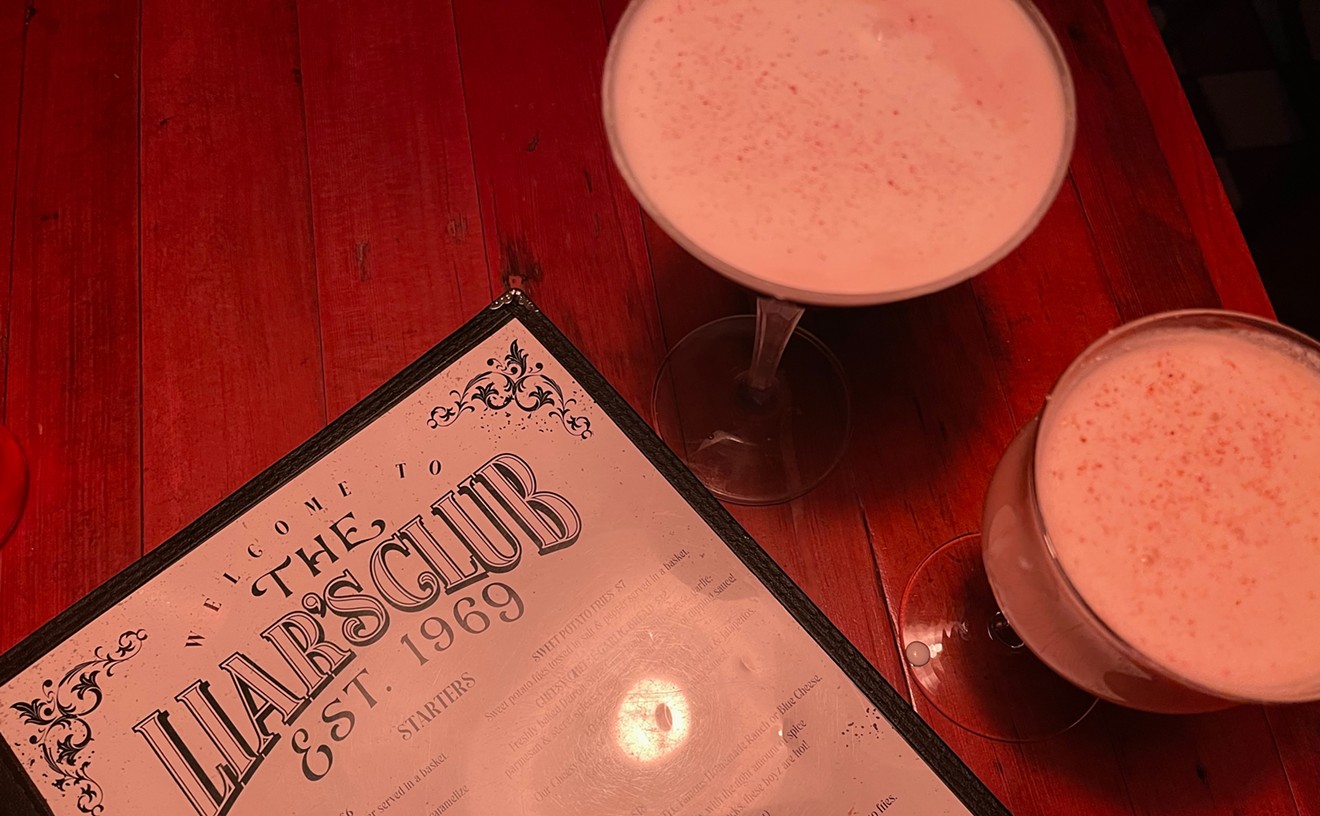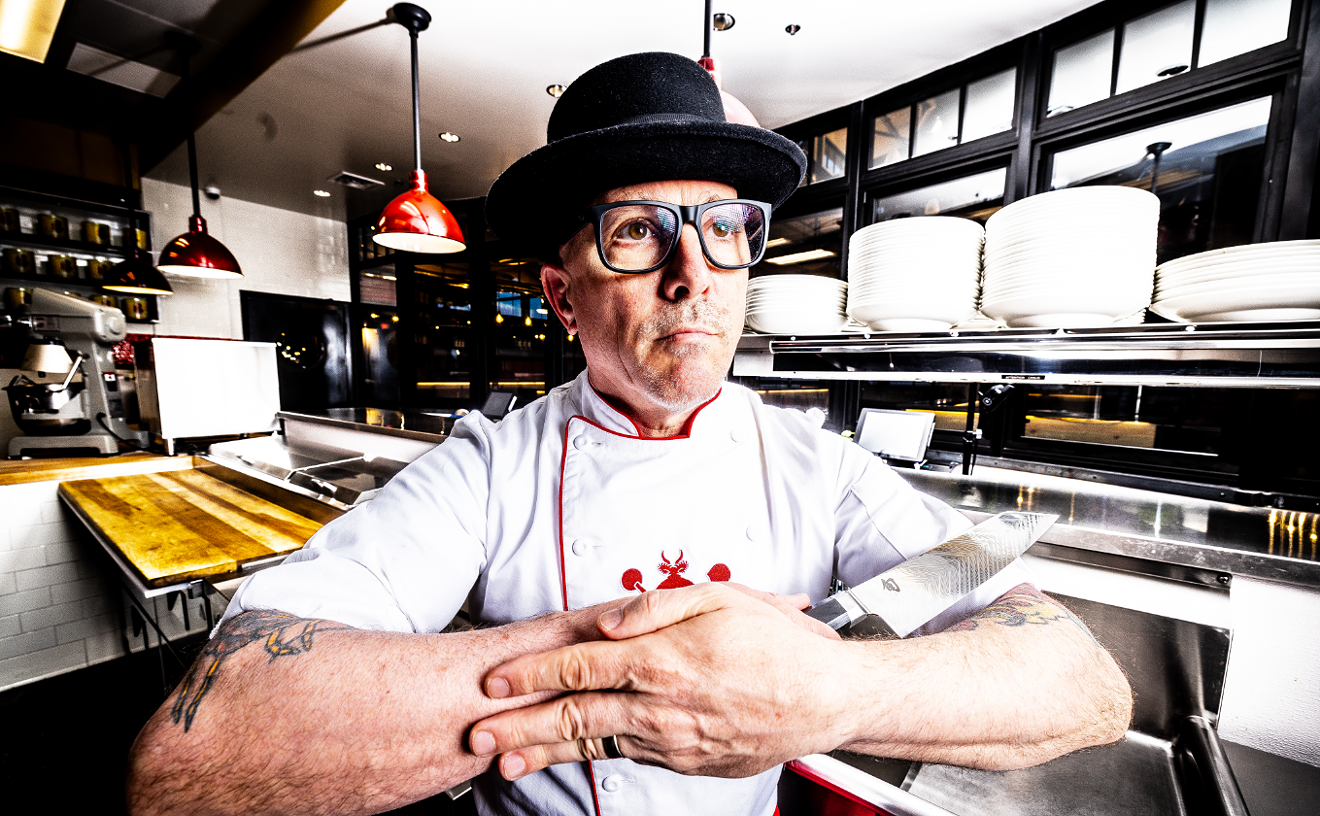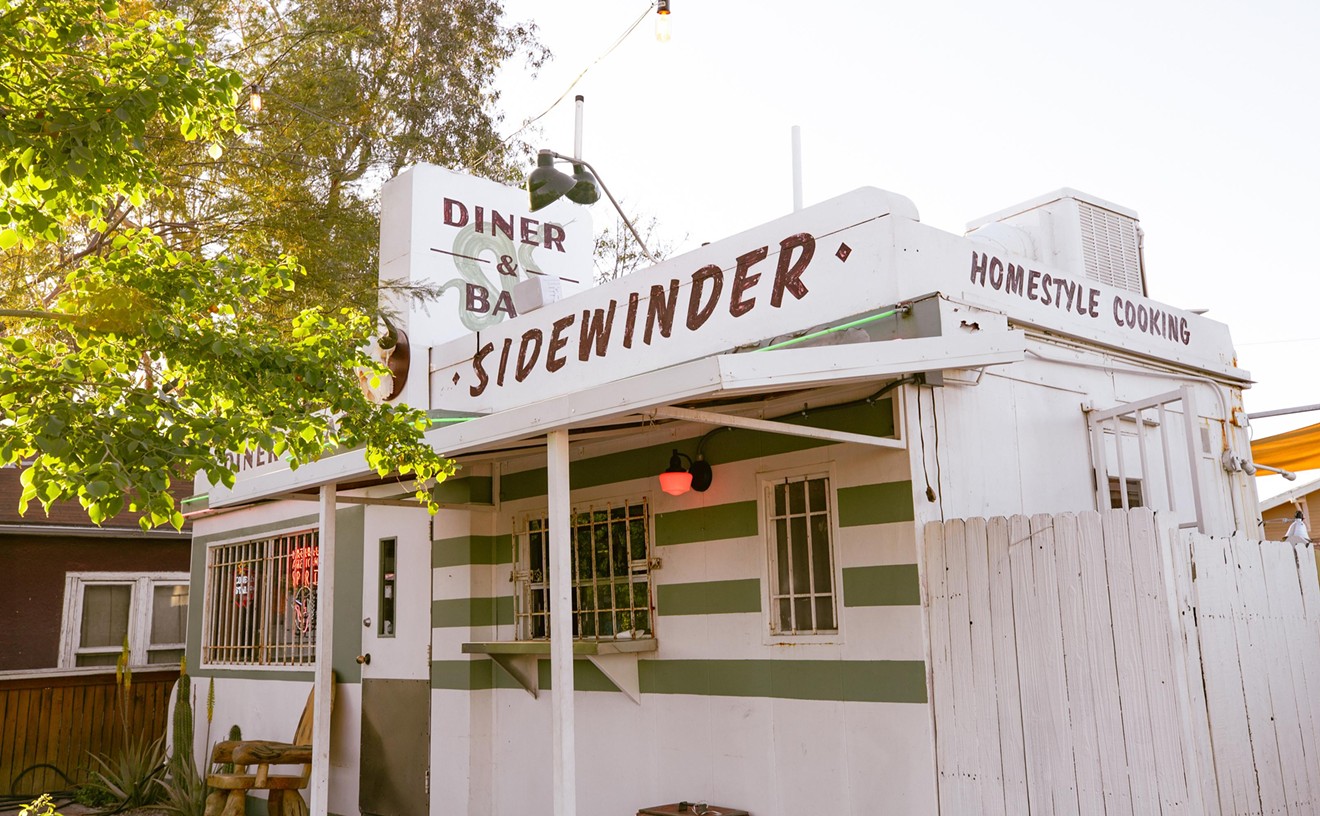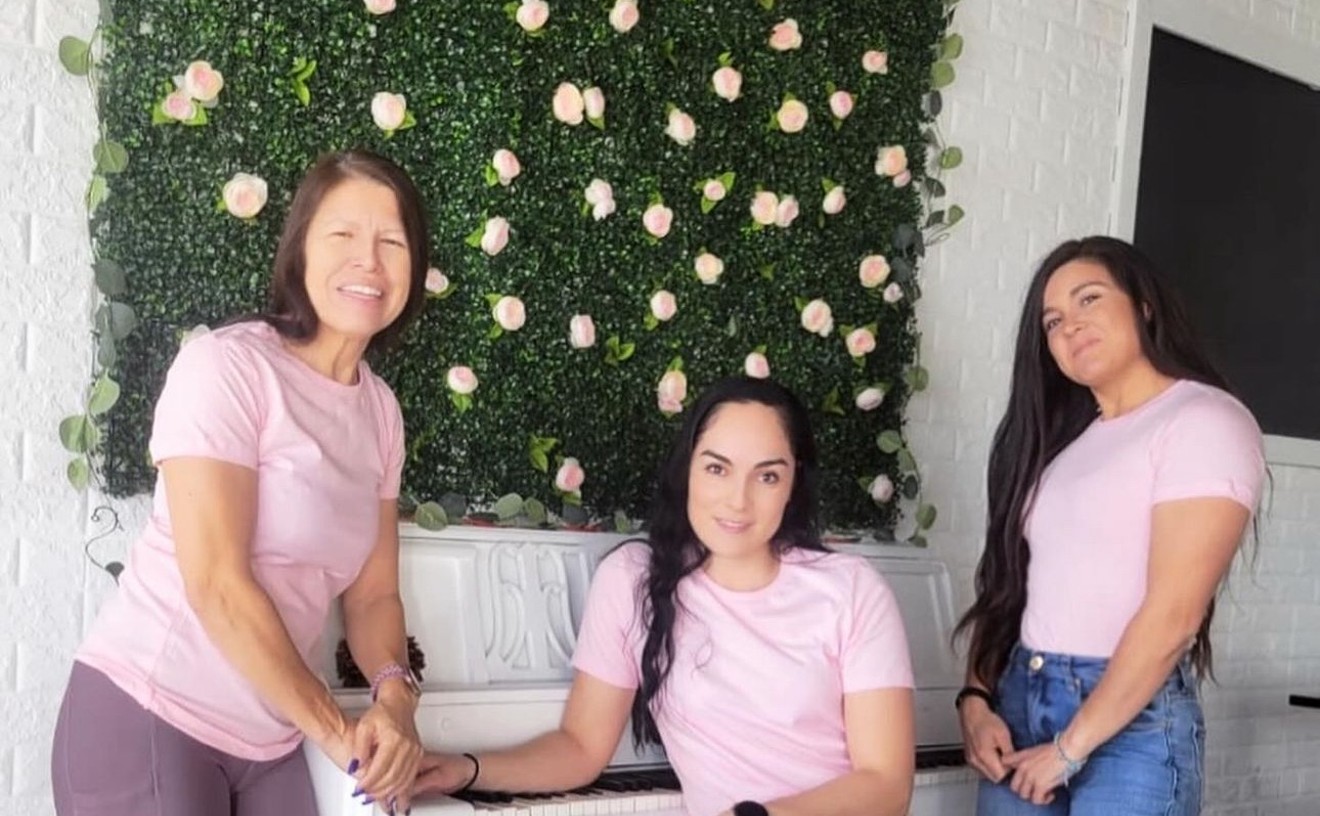If Mexicans are a minority in this country, however, these athletes come from a people that's a minority south of the border.
Yaqui Indian players make up about half of the 12 teams in the Guadalupe Men's Baseball League that play their games on a rock-strewn field in the tiny Yaqui enclave of 5,600 residents.
Balls take wicked hops on the dusty diamond, and players regularly come across glass from broken beer bottles and even nails. "The nails are from carnival booths," says 32-year-old Miguel Flores, explaining that planting grass would be futile, since the field is trampled several times a year when it's used as a festival ground. But Flores speaks fondly of the field despite its condition. "I'd rather play here. This is our home field. We've been around for ages. I grew up playing here." He points to the church just beyond left field. "That church is very sacred to us. The field is, too."
Soon, another field, this one with grass, will open nearby. But games will continue to be played on the dirt field. Flores prefers it here, and looking out over the barren field at the sun setting past the church and temple that have been there forever, you can see why.
"It's a religion. I've been playing for 18 years. I started when I was 15." He looks on with concern when a 14-year-old right fielder has to come in after re-injuring his leg. "There's a lot of talent here in Guadalupe."
Suddenly, there's a loud crack followed by a "Holy shit!" Behind the plate, catcher Abel Valenzuela throws his mitt into the dirt and shakes his hand in pain. On the mound is a smiling Lino Valenzuela, Central Arizona College fireballer, big league prospect and Abel's brother. "I play here in the summer," Lino says. A tall, angular pitcher, he's already been drafted by major league teams twice and hopes to go in the lower rounds after the next college season.
His team, the Ice Boys, sits under a makeshift dugout of plywood and two-by-fours. Asked if any of them can speak Yaqui, the players are silent until one of them mutters, "Kita tomi," and the rest erupt in laughter. "That means I'm broke,'" says Abel Valenzuela. "Some of us know the basics." All of the Yaquis speak Spanish fluently. "We're all in ESL," Abel quips.
Frankie Montiel, who plays for a team named the Yaquis, is another prospect who will play for Southeast Missouri State next season. "I grew up throwing rocks here," he says. His team has been playing since 1969.
"It's part of our life, our tradition," says Yaquis player Donicio Gonzalez. "My dad played. I started around 13 or 14. Who knows how long it's gone down. My granddad played. It's a men's league, but we see kids and we try to encourage them for more."
The Yaquis today face the Cardinals, another team made up of Yaqui players. Asked if the two are rivals, the Cardinals players nod in agreement. "Longtime rivals. Many, many years," says player Ramiro Vacaneri.
"We've been playing against each other for 20 years," adds Roman Moreno. "In leagues, tournaments, hotels, swimming pools. Marco Polo!'"
Cardinals scorekeeper Louis Reyes, an ex-player, says he hopes Lino Valenzuela can make it to professional ball. The 46-year-old had major league dreams of his own. "I tried out for Cincy in 1976," he says, and impressed the team with a fastball exceeding 90 mph. But that wasn't enough, he says. "They told me my education wasn't high enough. I faced a few of them and struck some of them out." He ended up playing in semi-pro leagues around town.
The other teams in the Guadalupe league are made up of Mexican-American players, but one squad, considered the best, is made up mostly of Dominicanos.
"When we play them, we can't really understand what they say," says Robert Villegas sarcastically. "They talk too fast."
After chasing their big league hopes, older players in Guadalupe still don't give up their cleats. They play in an old-timers' division, minimum age 40, and seem to take pleasure in ragging the younger guys. Particularly, it seems, about their weight.
"We're 40 or more -- a lot more -- but when we were younger, at least we could steal second," says Joe Moreno, who shakes his head at the portliness of some of the younger men. "These guys aren't even 30! But look how they eat! For us, it's okay."
Then one chubby player smacks a ball toward the Yaqui temple beyond left field. "But look how they can hit!" But there are no fences, and what should have been an easy home run yields only a triple for the rotund slugger, who is jeered for his slow speed.
"Hey! Call 911! Do you need oxygen, mijo?"










